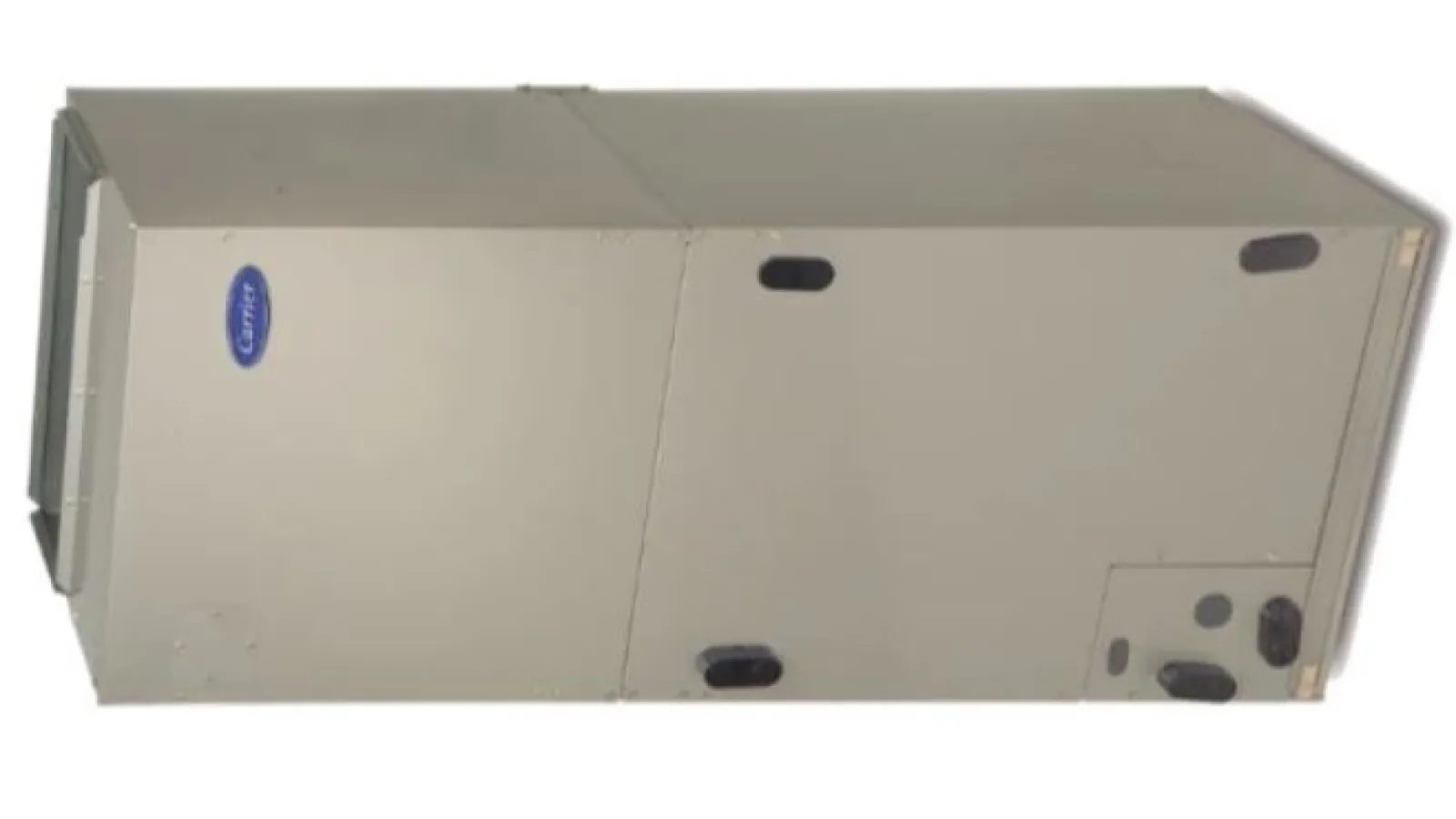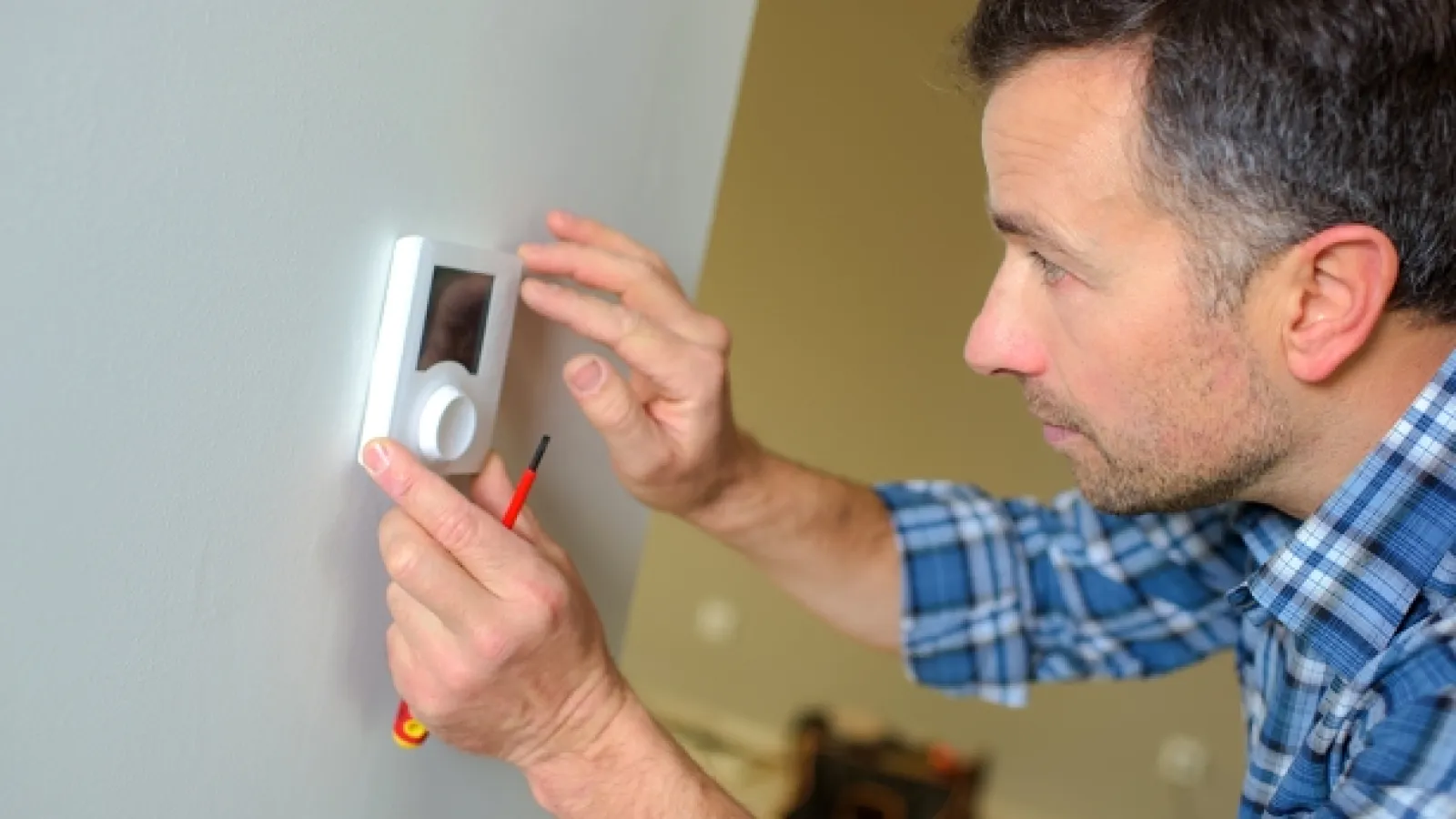Many homeowners in Atlanta ask, "What is an air handler in HVAC, and why does it matter?" Some even ask, "Is it the same as an AC unit?" Our NATE-certified HVAC technicians at Estes Services explain what an air handler does, how it works, and why it is essential for year-round comfort.
What Is an Air Handler?
An air handler, sometimes referred to as an indoor AC unit, works with your heating and cooling system to distribute conditioned air throughout your home. It pushes heated or cooled air through ducts so each room stays comfortable.
Most installations are located in attics, basements, or utility closets with adequate ventilation. Air passes through a filter, blower fan, and evaporator coils before circulating through your ductwork. This removes dust, manages temperature and humidity, and improves indoor air quality.
Air Handler vs Air Conditioner
The outdoor AC unit releases heat outside, while the air handler is the indoor unit that distributes cooled or heated air. Refrigerant in the evaporator coils absorbs heat inside, then travels outdoors to the AC condenser to release it. Both units work together continuously.
Main Components of an Air Handler
Air Filter
Captures dust, pollen, and debris before air circulates through your home, protecting the system.
Blower Fan
Moves conditioned air through the ductwork into living spaces and assists airflow for heating when paired with a furnace or heat pump.
Evaporator Coils
It contains low-pressure refrigerant. As air passes over them, heat is absorbed, initiating the cooling process.
Types of Air Handlers
- Single-speed: Runs at one constant speed.
- Multi-speed: Offers several speeds for better comfort and efficiency.
- Variable speed: Adjusts to maintain precise temperatures and humidity control while saving energy.
How an Air Handler Impacts Your HVAC System
- A failing blower motor may not circulate air properly or may use excessive power.
- Dirty or damaged evaporator coils reduce the efficiency of heat exchange.
- Clogged filters restrict airflow and put a strain on the system.
Pro tip: Change filters on schedule, keep the area around the unit clean, and schedule seasonal maintenance to protect performance.
When to Replace an Air Handler
Air handlers typically last 10-12 years. Older models may lose efficiency and filter contaminants less effectively. Replacing your unit improves comfort, reduces energy costs, lowers noise levels, and enhances indoor air quality. For best results, replace the air handler and the outdoor AC unit as a matched system.
Air Handler Installation and Matching
Manufacturers design indoor and outdoor components to work together. Efficiency ratings are based on matched systems. Estes Services technicians ensure your air handler and outdoor unit are correctly paired for optimal performance.
Air Handler FAQs
- What is an air handler in HVAC?
- An air handler is the indoor unit that circulates heated or cooled air through your ducts. It includes a blower, evaporator coils, and a filter.
- What does the air handler do on an AC unit?
- It moves conditioned air indoors and works with the outdoor AC to absorb heat inside and release it outside as part of the cooling cycle.
- Is an air handler the same as an air conditioner?
- No. The air conditioner is outdoors and releases heat. The air handler is indoors and circulates air through your home.
- When should I replace an air handler?
- Consider replacement around 10-12 years, when performance starts to drop, repairs become more frequent, or when upgrading the outdoor unit is necessary.
Need help with your air handler? Our NATE-certified team offers maintenance, repair, and installation throughout Metro Atlanta.



